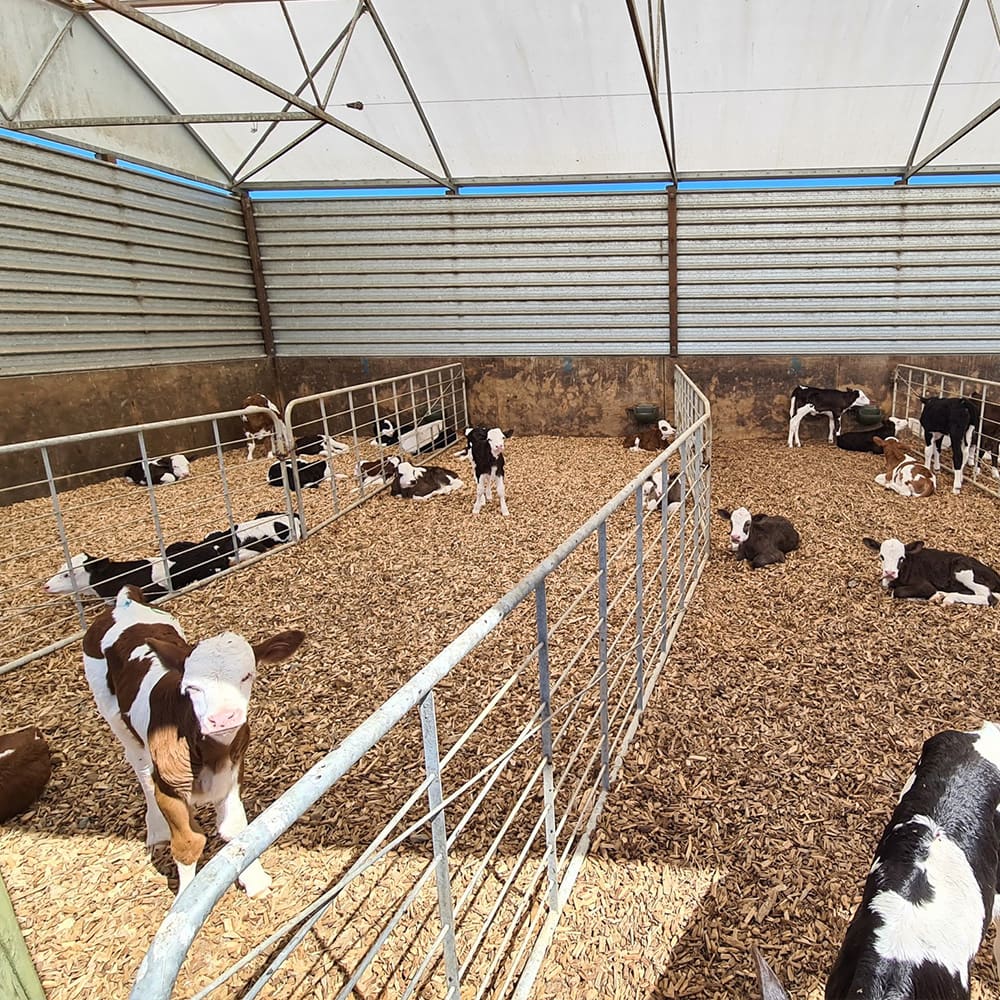Agraforum – EnviroCal
- Decreases soil compaction
- Improve water penetration /less water usage
- Improve drought resistance
EnviroCal is a source of ionised calcium, that makes incremental changes quickly and easily to the soil structure and plant metabolism.
EnviroCal at a glance
- Decreases soil compaction. #1 limiting factor to Agricultural production we can control.
- Increases flocculated soil depth, deeper aerobic zone.
- Improves soil water holding capacity.
- Enhances mineral uptake to plants.
- Improves soil pH.
EnviroCal is a source of ionised calcium, ready to work on your soil straight away. Highly soluble, it is proven effective in making incremental changes quickly and easily to the soil structure and plant metabolism. Made from food grade calcium sources, it comes in a unique state,made possible through a proprietary manufacturing process that reduces the bond strength of the calcium sources used enough to isolate the calcium molecules.
Key benefits of improved soil structure thanks to EnviroCal:
- Reduced costs of irrigation due to improved water holding capacity.
- Improve water penetration /less water usage
- Improve drought resistance
- Deepen aerobic zone
- Improve soil structure
- Increase biological activity
- Reduce erosion
- Crop fields need fewer passes (one-pass fields)
- Less urea use, Increase fertilizer efficiency
- Improve soil PH
- Reduce weed pressure
- Low shipping cost
- Easy to apply
Why EnviroCal?
EnviroCal Calcium offers immediate effectiveness as it’s readily available for use, eliminating the need for microbial activity to unlock its benefits. This product is especially potent in compacted soil systems where it jump-starts a series of reactions that enhance calcium availability, soil structure, nutrient absorption, and microbial activity.
Compacted soils often struggle to support biological activity due to poor structure, which is essential for breaking down traditional, insoluble calcium products like lime and gypsum. EnviroCal Calcium not only bypasses this need but also actively improves soil structure. Upon application, it alleviates compaction, increases pore space, and boosts soil microbial life, leading to enhanced soil health and remediation.
Correcting the cause of compaction
Soil compaction is a major limiting factor in agricultural success, often mistaken as merely a result of heavy machinery or excess rainfall. In reality, it stems from the loss of electrical charge in soil colloids—tiny charged particles crucial for soil structure. These colloids, much like magnets, possess internal and external electrical charges which help bind them together into aggregates by attracting a balance of cations and anions. When this balance is disrupted by excessive salts (as found in most fertilisers, herbicides, insecticides and pesticides), sodium, or poor agricultural practices, the colloids weaken and disperse, leading to soil degradation and erosion.
The solution lies in addressing the mineral balances, particularly through enhancing available calcium, which significantly boosts the electrical charge of soil colloids, promoting aggregation and improving soil health. This creates a more hospitable environment for soil microbes, which play a crucial role in forming soil aggregates and enhancing soil structure through the production of glomalin. Addressing these underlying issues, rather than just the symptoms, is essential for sustainable farming and soil management.
Did you know that plants need electricity to grow?
Plants have a symbiotic relationship with the microbiology living in the soil; good amounts of which, naturally produce electrical conductivity. The microbes tell the plant to feed them, which the plant does by pushing out sugars and other exudates via its roots; in return they produce acids to loosen minerals in the soil and make them available for the plants to take up.
Animals get their nutrients from the plants they eat. These plants get their goodness from the soil. You can see how that quickly becomes a problem when there’s little there for the plant to access. Because New Zealand’s agricultural land has poor microbiology, instead of getting nutrients from the soil, crops rely solely on the chemicals applied above ground, most of which eventually washes away. Without good, loose soil structure, we’re essentially ‘hyrdroponic farming’ on dirt.
But why change when this method works and there’s a huge economy riding on it? Because it’s the proverbial ‘ambulance at the bottom of the cliff’ and ultimately only exacerbates the problem.
To bring your soil back to life we’re going to challenge what you thought you knew. It’s called EnviroCal and it could totally change your output without any more input; even halving what you need in terms of fert and irrigation.
You might think you’re already using calcium, e.g. Lime (Calcium Carbonate), Gypsum (Calcium Sulphate), Dolomite (Calcium Magnesium Carbonate) Calcium Nitrate etc. But not all calcium is equal. Calcium in its pure form is extremely electrically powerful. Like a very strong magnet it will immediately attract and bond with other elements near it. That’s why those blends aren’t potent; they’re already electrically satisfied.
What makes calcium special?
Calcium is the single most important mineral in the soil. Without it, none of the others can do what they need to in order to achieve optimum plant production.
To make something complex, simple: think of calcium like the ‘Mother’ of the soil, sorting out conflict between the other elements (the arguing kids). This then leaves the ‘Father’ (the phosphate) free to do all the work in carrying the minerals in the right order and ratio into the plant, ultimately giving it more energy to increase its growth, structure and nutrient content.
Calcium’s ability to use its electrical power to assist other minerals for overall healthy soil that produces quality food also make it a great solution to a wide source of soil problems, including salt, sodium, weeds, insects, pH, and drought.
GSR Calcium is a source of ionised calcium. Highly soluble, it is proven effective in making incremental changes quickly and easily to the soil structure and plant metabolism.

![soil-new-min[1] soil new min1](https://ergozymenz.com/wp-content/uploads/2024/10/soil-new-min1.jpg)






